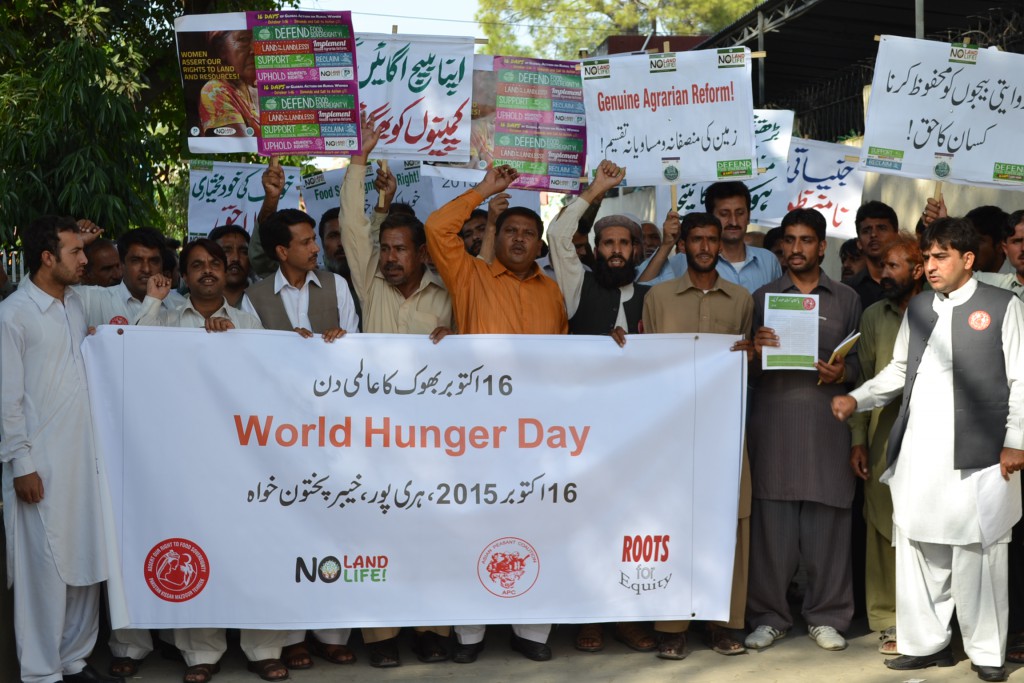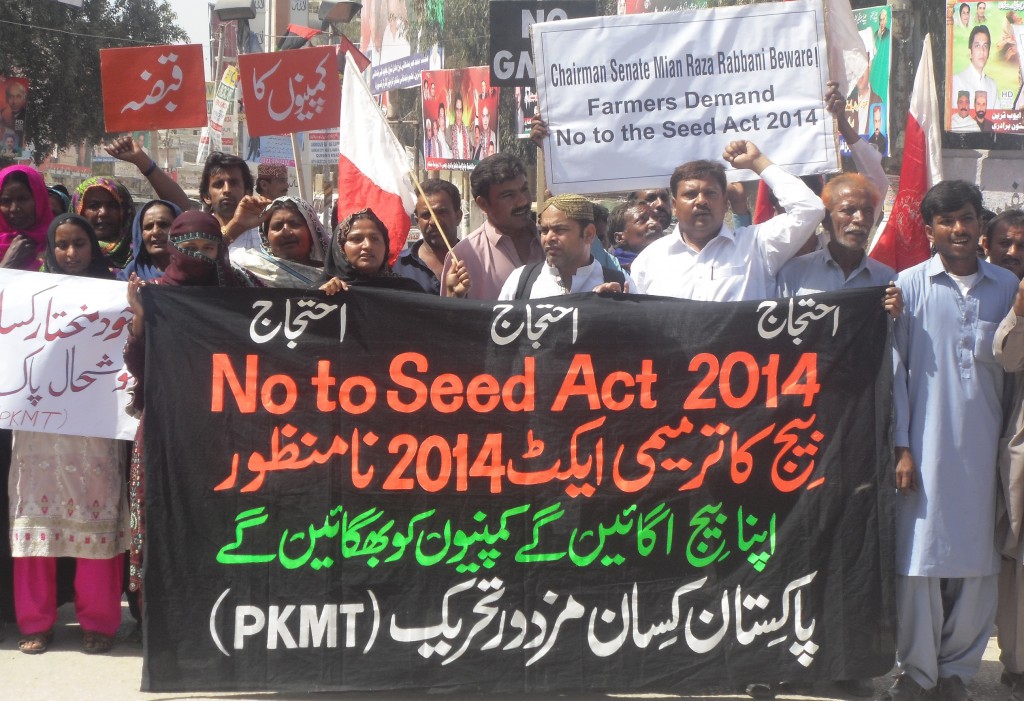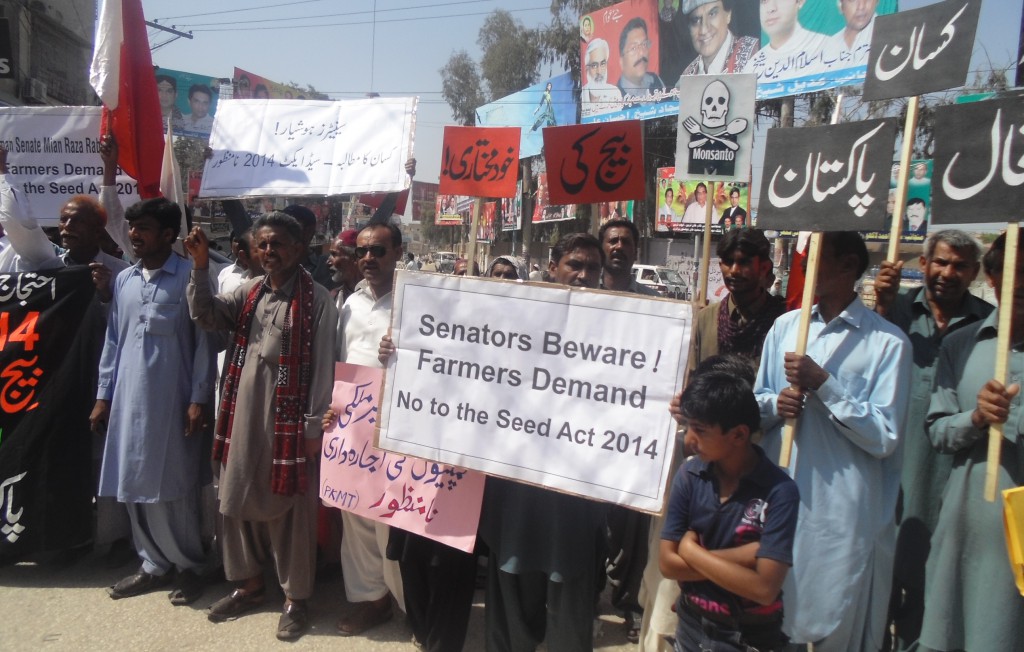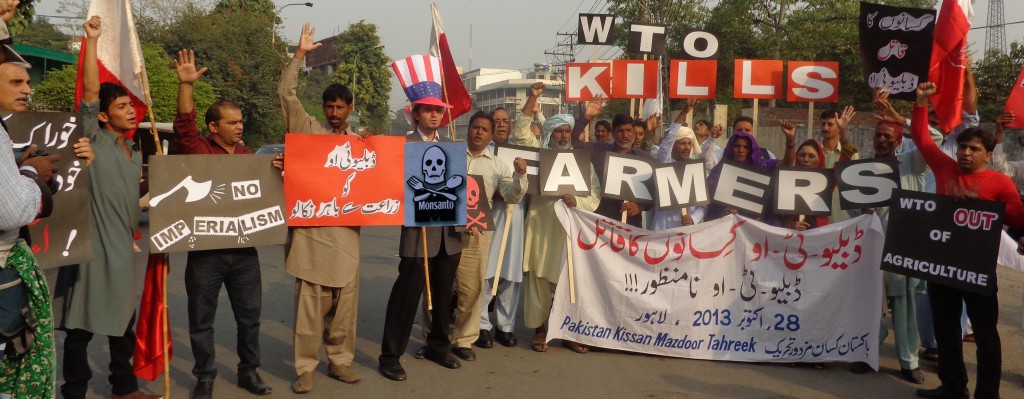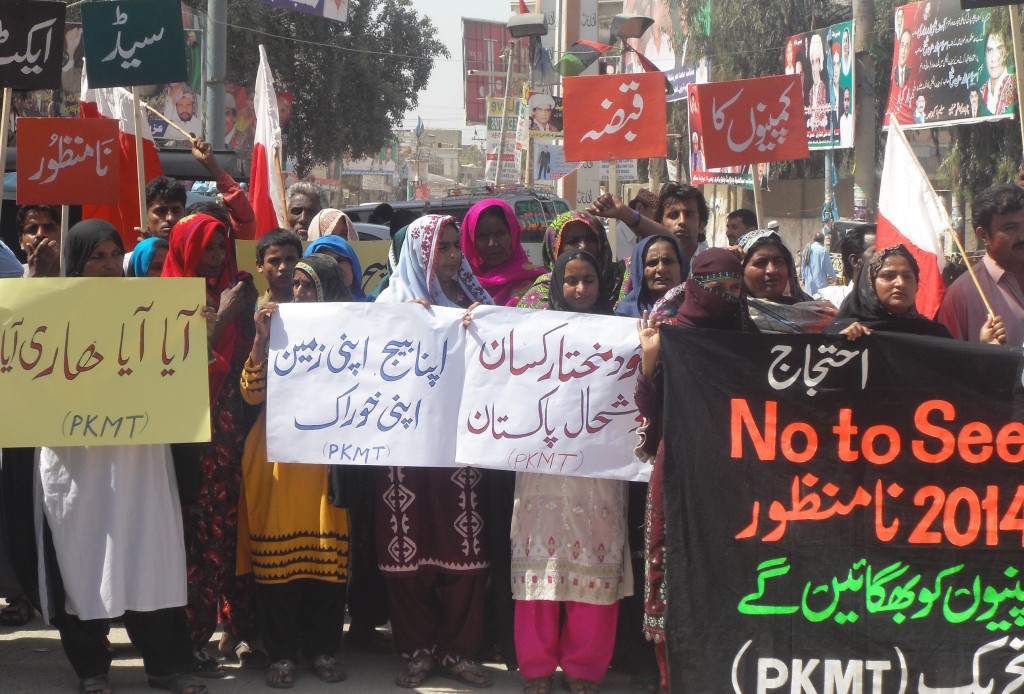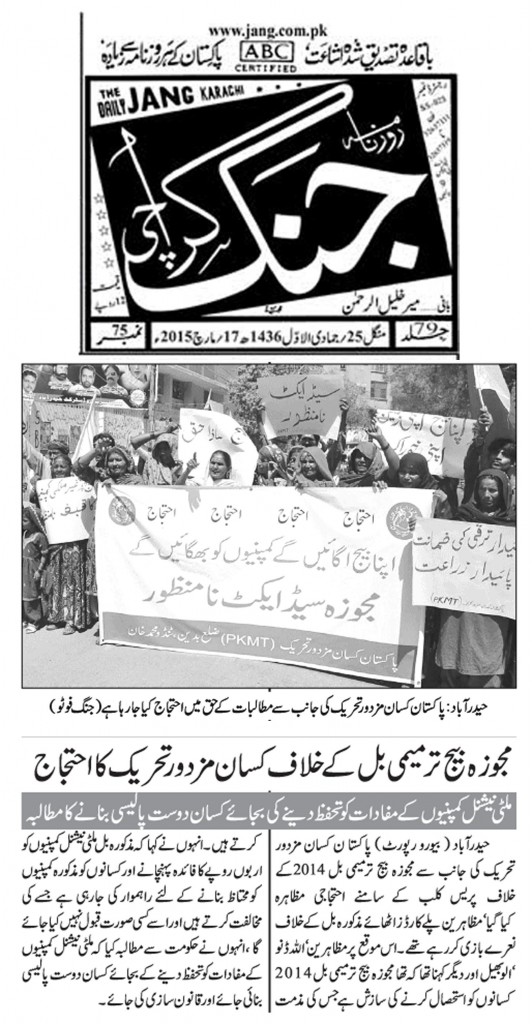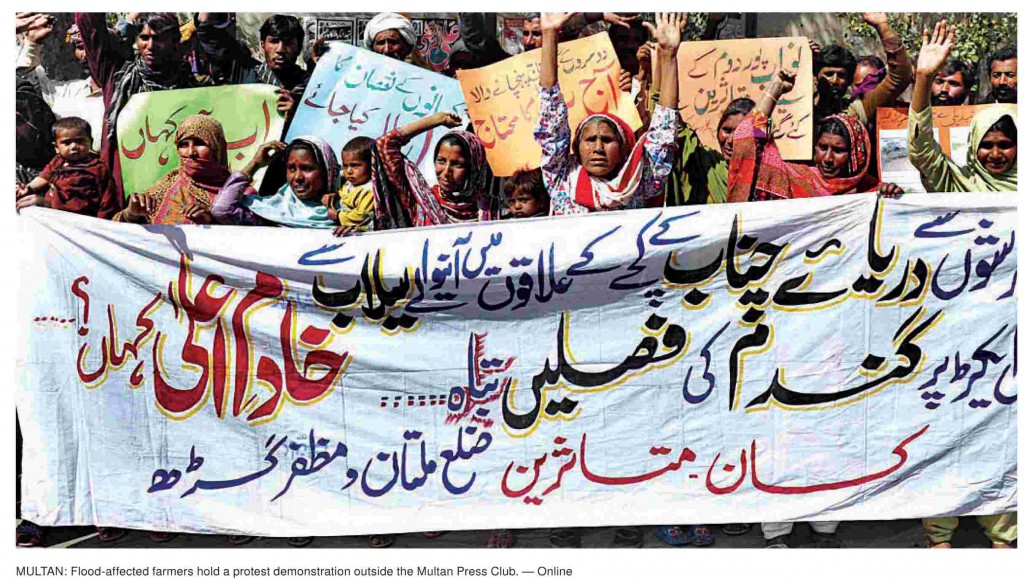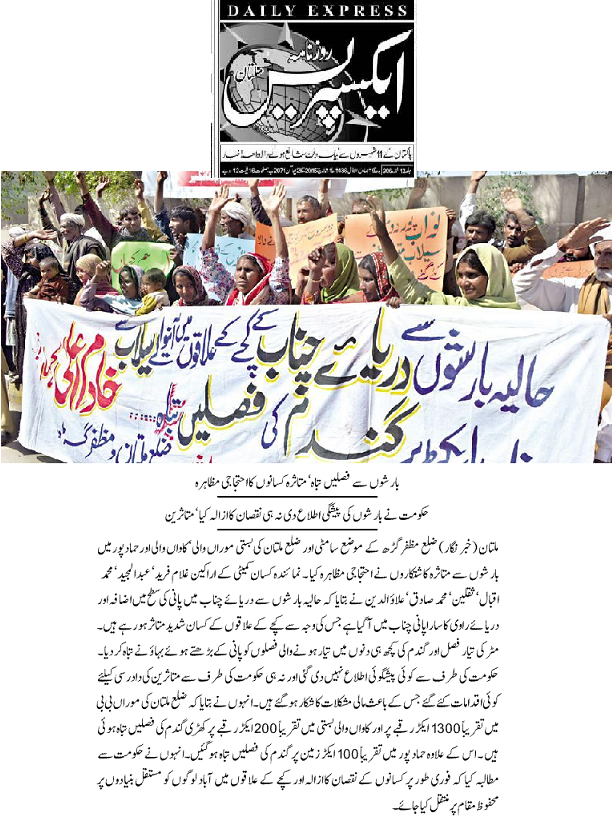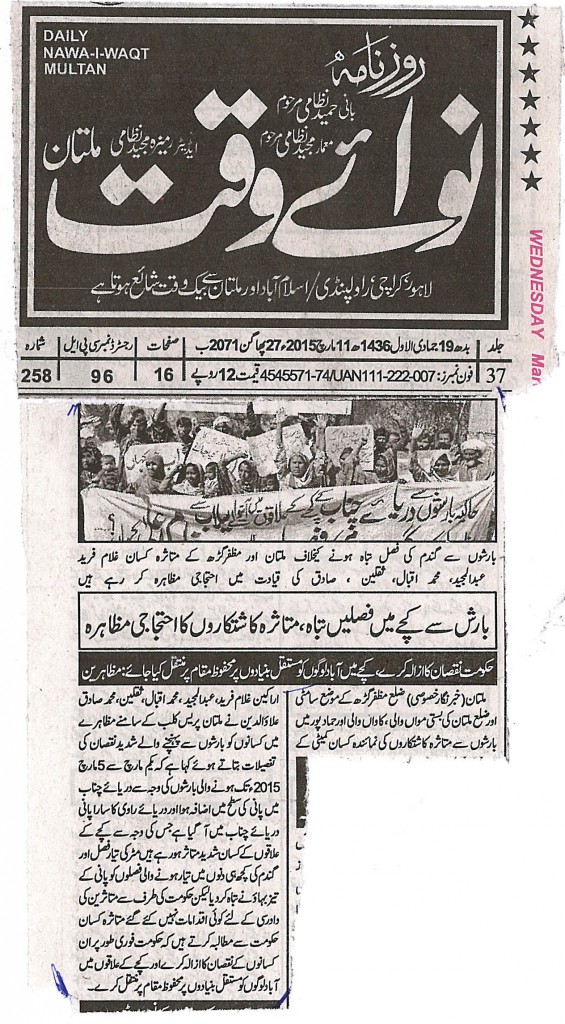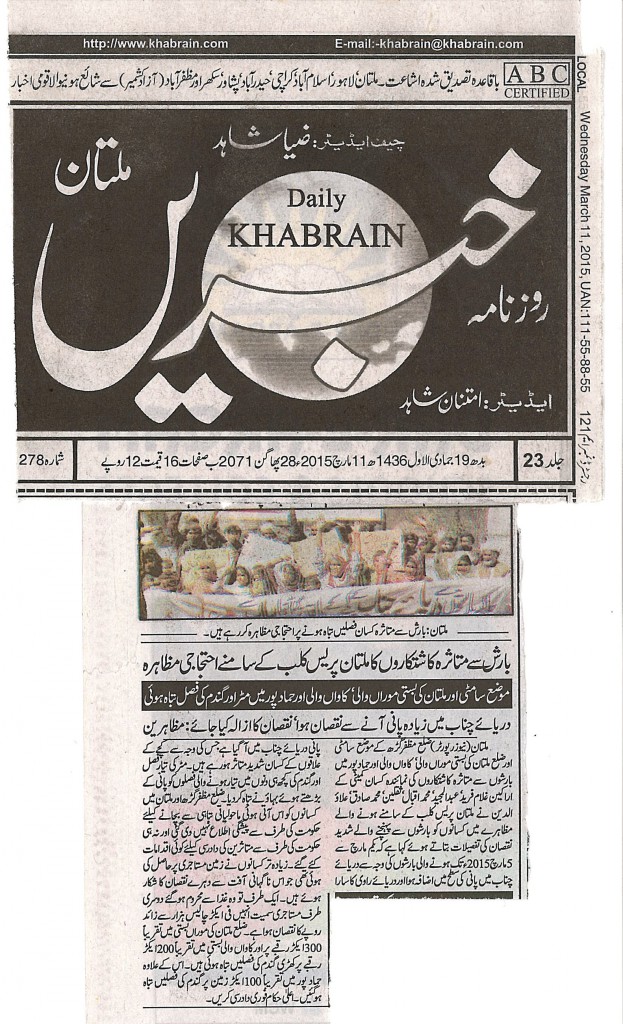Dawn Report | 3/2/2016
|
BADIN: A station house officer (SHO) was injured and 10 protesters, most of them women, fell unconscious when a strong contingent of police tried to evict several families allegedly occupying around seven acres of land in Sain Bux Rind village, located within the Ward-5 of the city, on Tuesday. Witnesses said that a police force riding eight vans and an armoured personnel carrier surrounded the village and ordered its inhabitants to vacate the land immediately. However, the villagers offered stiff resistance claiming that they had been living on these lands for more than four decades. The police force moved into action and started demolishing the houses one after the other. The villagers, men and women, tried to physically stop the police from going ahead with the operation upon which they were baton-charged, which aggravated the situation. More people joined in the resistance and during the course of the clash, SHO of the Model police station Hakim Ali Jalbani, who was leading the operation, was attacked with a hatchet. Police lobbed teargas shells to disperse the protesters causing eight women and two children to fall unconscious. The police officer was rushed to the Badin Civil Hospital where doctors referred him to the Hyderabad Civil Hospital due to his grave injuries. According to villagers, two children jumped into the nearby canal when they could not bear the suffocation caused by teargas. They were unaccounted for till late in the evening, they added. The villagers claimed that the land in question belonged to the Badin Industrial Zone and they had never been asked by any authority to vacate it until Deputy Commissioner Rafique Ahmed Qureshi recently leased out a portion of it to a friend of his, Tariq Ahmed. They alleged that the DC issued the eviction order to oblige the `buyer` and asked the area police to use force against them [occupants of the land]. The DC, however, insisted that the villagers were illegally occupying the land and would have to vacate it. Reports reaching here late in the evening said that a 600-strong police force sent to the scene surrounded the village with the help of 15 vans and an armoured personnel carrier. Four villagers were picked up on suspicion of their involvement in the attack on the SHO. http://epaper.dawn.com/DetailImage.php?StoryImage=02_03_2016_119_001 |


